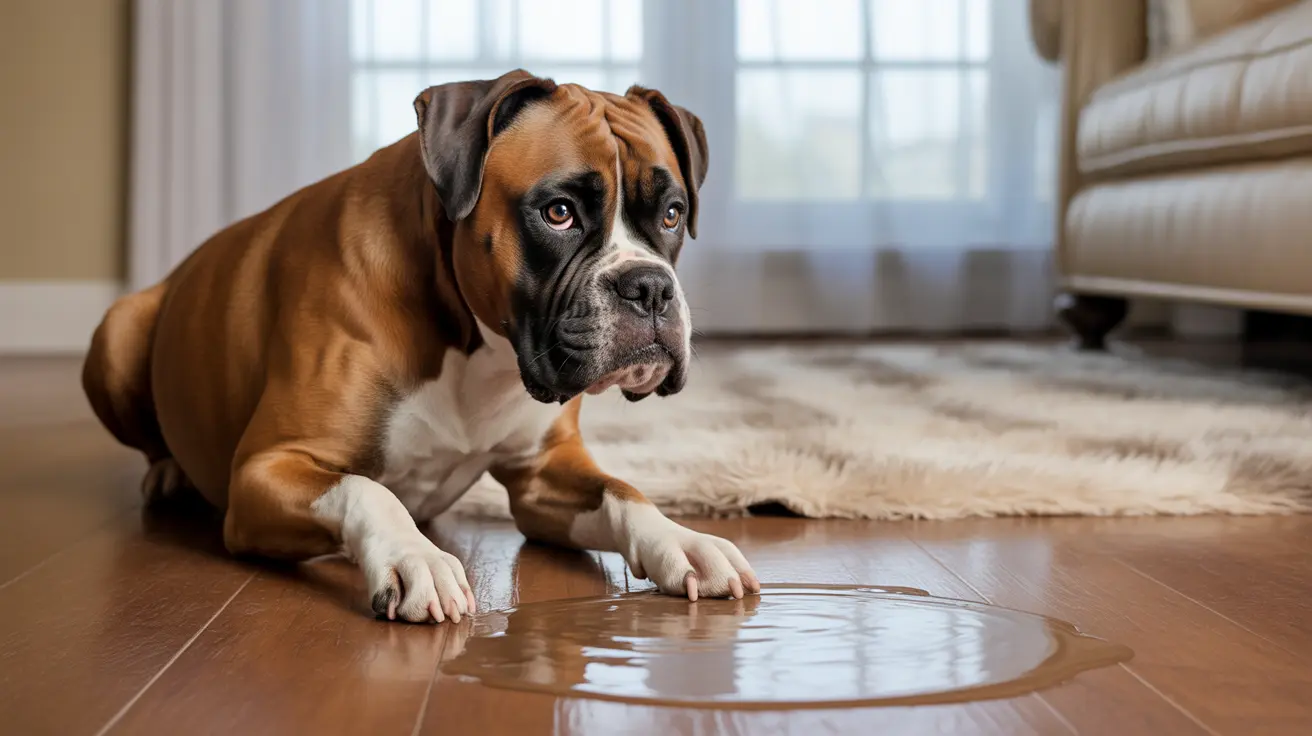Understanding Sudden Indoor Urination in Dogs
When a previously house-trained dog starts peeing in the house, it can be both frustrating and concerning for pet owners. This sudden change in behavior often signals underlying issues that require prompt attention and investigation. Understanding why your dog is suddenly peeing inside is the first step toward resolving this challenging situation.
The causes of unexpected indoor urination can range from medical conditions and age-related issues to behavioral changes and environmental factors. Let's explore these potential triggers and learn how to address them effectively.
Medical Causes to Consider First
Before assuming behavioral issues, it's crucial to rule out medical conditions that could be causing your dog to suddenly pee inside. Several health issues can lead to increased urination or loss of bladder control:
Urinary Tract Problems
Urinary tract infections (UTIs), bladder stones, and kidney disease can cause frequent and urgent urination. If your dog shows signs of straining or discomfort while urinating, or if you notice blood in the urine, schedule a veterinary visit immediately.
Hormonal and Metabolic Conditions
Diseases like diabetes, Cushing's disease, and thyroid disorders can increase thirst and urination. These conditions are particularly common in middle-aged and older dogs and require proper medical management.
Behavioral and Environmental Triggers
Anxiety and Stress
Changes in routine, new household members, or environmental stressors can trigger indoor urination. Dogs may react to these changes by marking territory or losing control of their bladder when anxious.
Changes in Living Situation
Moving to a new home, rearranging furniture, or changes in work schedules can disrupt established house-training patterns. Dogs need time to adjust to new environments and routines.
Age-Related Factors
Senior dogs may experience more frequent indoor accidents due to weakening muscles, cognitive decline, or age-related medical conditions. These cases often require a combination of medical management and environmental modifications.
Solutions and Prevention Strategies
Immediate Steps
- Clean accidents thoroughly with enzymatic cleaners
- Maintain a consistent bathroom schedule
- Monitor water intake and feeding times
- Restrict access to previously soiled areas
Long-term Management
Work with your veterinarian to develop a comprehensive treatment plan that may include:
- Medical treatment for underlying conditions
- Behavior modification techniques
- Environmental modifications
- Dietary adjustments if necessary
Frequently Asked Questions
Why is my previously house-trained dog suddenly peeing in the house?
Sudden indoor urination in a house-trained dog can be caused by medical issues, anxiety, changes in routine, or age-related problems. Always start with a veterinary check-up to rule out health concerns.
Could my dog's sudden indoor urination be caused by a medical condition like a urinary tract infection or diabetes?
Yes, medical conditions are common causes of sudden indoor urination. UTIs, diabetes, kidney disease, and hormonal imbalances can all lead to increased urination or loss of bladder control.
How can anxiety or stress lead to a dog peeing inside the house unexpectedly?
Anxiety and stress can trigger indoor urination through increased urge to mark territory, reduced bladder control, or regression in house-training. Common stressors include changes in routine, new pets, moving, or separation anxiety.
What steps should I take to diagnose why my dog has started peeing indoors all of a sudden?
Start with a veterinary examination to rule out medical issues. Keep a log of accidents, noting timing and circumstances. Consider recent changes in routine or environment that might be affecting your dog's behavior.
How can I manage or retrain my dog to stop peeing in the house after sudden accidents?
After addressing any medical issues, return to basic house-training principles: establish a consistent schedule, reward outdoor elimination, clean accidents thoroughly, and manage anxiety if present. Consider working with a professional trainer for persistent issues.
Conclusion
While sudden indoor urination can be distressing, remember that it's often a symptom of an underlying issue that can be resolved with proper diagnosis and treatment. Stay patient, work closely with your veterinarian, and maintain consistency in your approach to help your dog return to proper house-training habits.






